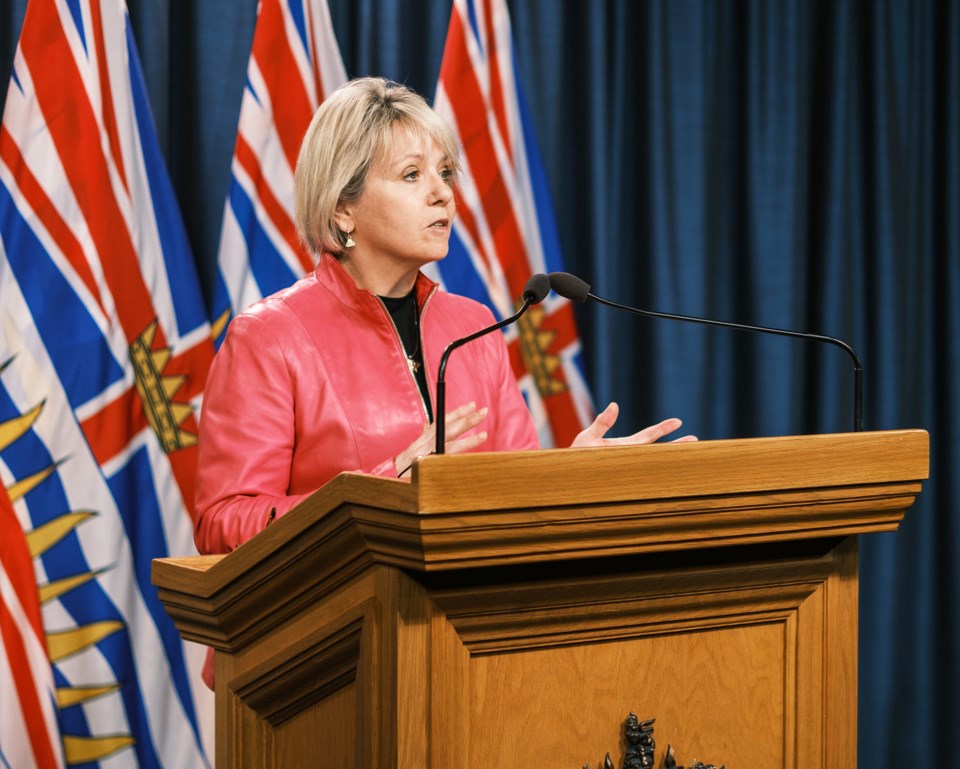British Columbians hoping the upcoming May long weekend will mark the end of restrictions on travel, indoor dining, and other public health measures were put on notice this week to temper their expectations.
Dr. Bonnie Henry said instead of lifting restrictions set to expire May 25, the province will unveil a “Restart 2.0” plan to ease the measures in the weeks and months ahead.
“I think what people need to know is that nothing is changing right now,” she said, dashing the dreams of those looking for a return to normalcy.
“We are in a place where we're in a good direction and we need to keep it up. We need to keep it up at least through the end of the May long weekend, so don't start thinking about making plans now until after that period of time.”
British Columbians will get a detailed slideshow presentation from Dr. Henry and Premier John Horgan about when and how travel can resume, movie theatres can reopen, people can gather with friends, indoor dining can resume, and travel between health authorities can start again.
That will depend on things like case counts, hospitalizations, patients in intensive care units, the capacity of hospitals and the vaccine rate of the general population. More than half the population in the province has received at least one dose of a vaccine.
“Then we'll be going back to the same approach that we took last May where we started gradually increasing our activities based on risk, based on monitoring what is going on, how many more people have been immunized, how our case and transmission rates are going down and that will continue into the summer,” said Henry.
B.C. is a bit late when it comes to a Restart 2.0 plan.
Horgan has faced pressure in recent weeks to set at least some sort of benchmarks the public can understand, at the very least to act as an incentive for continuing to follow the rules.
The province’s reeling restaurant, tourism and hospitality sectors have also called for a plan that sets out when they can reopen, or at least begin planning in broad brush strokes.
Saskatchewan released its restart plan in mid-April. Henry has said she was “surprised” that province moved so quickly, and warned even those who think they have COVID-19 under control, like Nova Scotia, can suffer setbacks and widespread transmission.
Henry said she’s working behind the scenes to align B.C.’s benchmarks with others being developed across the country.
B.C. brought in its first “Safe Restart” plan one year ago, in May 2020. At that time, schools were closed, mass gathering were reduced to 50 people, indoor dining was forbidden, personal service businesses like dentists and hair salons were shuttered and non-urgent surgeries were postponed.
The original plan had four phases, with detailed modelling and projections on what the province would have to see in order to progress to re-opening certain sectors. B.C. made it through three stages, but the fourth - resumption of large conventions, concerts and international tourism - was elusive, with vaccines failing to arrive until late 2020.
This time, vaccines are not an issue, given that more than one million doses of Pfizer alone will arrive in the province this month and next.
But there are still “hot spots” of transmission in Fraser Health where vaccination rates are low and the virus is spreading. When and how the province brings that under control will dictate a large part of the recovery timeline.
“If things continue to go in the right direction, by the time we get to our July long weekend, I think we should be able to do even more in terms of having small gatherings, in terms of having those events that are so important,” said Henry.
In the summer, potentially people can plan weddings and celebrations like that, said Henry.
She said she’s watching the United Kingdom “very carefully” because it has used a gradual re-opening plan, while testing for COVID-19 clusters and responding quickly to outbreaks before they could derail progress.
The U.K. will begin allowing events with up to 10,000 people next week, with potential full-scale sporting events next month.
“That's the goal but it's going to be slow and gradual.,” she said.
“We have learned that from watching around the world, that if we move too quickly the virus can take hold again, even when we have immunization to protect us.”
Rob Shaw has spent more than 13 years covering BC politics, now reporting for CHEK News and writing for The Orca. He is the co-author of the national best-selling book A Matter of Confidence, and a regular guest on CBC Radio.
SWIM ON:
- Rob Shaw last wrote we can expect John Horgan to bring back a controversial bill from last summer, because it obviously means a lot to him, and also because he can.
- Ireland has unveiled a bold new plan for its rural areas. Rural British Columbians - like our Dene Moore - are green-eyed with envy.
- Back in March 2020, Maclean Kay sat down with the Business Council of BC's Ken Peacock to get a sense of the economic cliff BC was about to plunge over.



